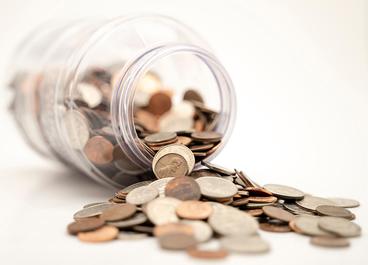Let's face it, applying to a health professional school can be expensive, and students often aren’t aware of the full array of costs until they encounter them in the process.
We recommend using a guide to health program application costs created by the Office of Health Professions Advising at Princeton University and Princeton alumni. The fees and expenses may be daunting, but remind yourself that you are investing in yourself and your future.
Navigating Application Expenses for Health Professions School (created by Princeton University)
Keep reading for a preview of some of the topics covered in the Princeton guide:
Standardized Test Preparation
Many health programs require applicants to submit scores from standardized tests like the Medical College Admissions Test (MCAT) or the Dental Admissions Test (DAT). Doing well on these tests requires studying and practice, and while there are many preparation resources students can use, test preparation books and practice tests can be expensive. Cost-saving options include checking out test prep books from the library, purchasing a test prep materials bundle, and creating your own study plan.
Standardized Test Registration
There’s often a fee to register for health program standardized tests. For example, it costs $330 to take the Medical College Admissions Test (MCAT), and $525 to take the Dental Admission Test (DAT), although Fee Assistance Programs can reduce these costs. Other expenses to take into account include travel to the test location, and rescheduling or canceling the test. It's important that you feel prepared to take the test, so you don’t have to pay again to retake it.
Primary Applications and School Selection
Many health programs use a system similar to the common application many undergraduate colleges use, where you create one application that then gets sent to the schools you've selected. Make sure you know the costs to submit a primary application through your program’s system, and the cost of sending that common application to each school you want to apply to. For example, in the American Medical College Application Service (AMCAS), the system used by medical schools, it costs $170 for the first school you select to apply to and $42 for each additional school.
Secondary Applications
After submitting your primary application, you’ll submit secondary applications to individual schools, to help schools assess your fit with their program. Secondary application fees vary by school and can range from being free to around $150 for medical schools, for example. Save money by applying for fee assistance programs early, or contacting individual schools to learn about financial assistance with their secondary application.
Interviewing
Interviewing costs will depend on whether the format will be in-person or virtual. For in-person interviews, account for travel to the city ($500-$1000 per school), within the city, and to stay overnight. Consider looking into cost-saving options like staying with local alumni or student hosts. For virtual interviews, account for tech or wifi-related expenses. Save money on interview attire by shopping at consignment or thrift stores. Data from the Matriculating Student Questionnaire (MSQ) showed that national median spent on medical school interviews in 2020 was $600.
Deposits
A deposit is an amount of money an applicant pays when they’ve been accepted to a school to reserve their seat in the program. Deposits range from costing between $500 to $3000. Research deposit costs prior to submitting your applications to programs, and keep track of deposit deadlines to withdraw so that your deposit to a school you’re not planning to attend can be refunded.
Second-Look Visits
Many health programs offer students they've admitted to visit campus to get a feel for what it would be like to attend their program. Admitted student days are often held after acceptances have been sent out, but before applicants are required to commit to a program (usually in April). You'll have the chance to meet other accepted applicants and attend events to get familiar with the program. Accepted applicants can expect to pay around $500 for a second-look visit.
